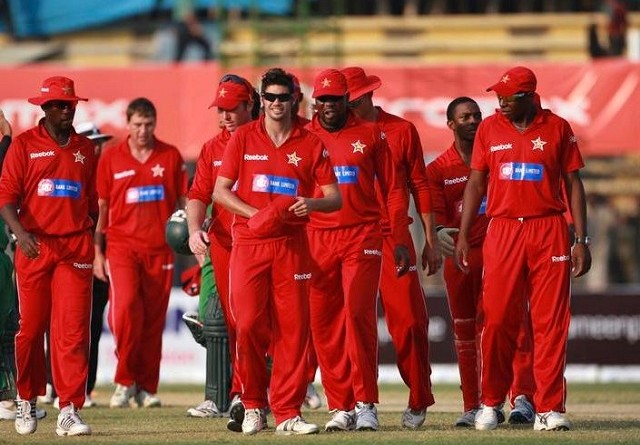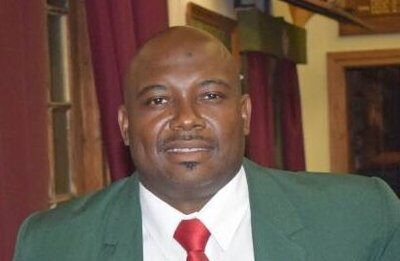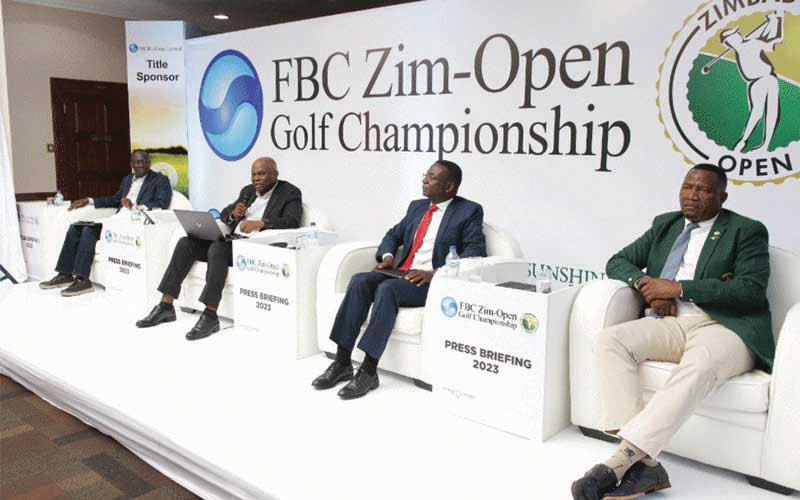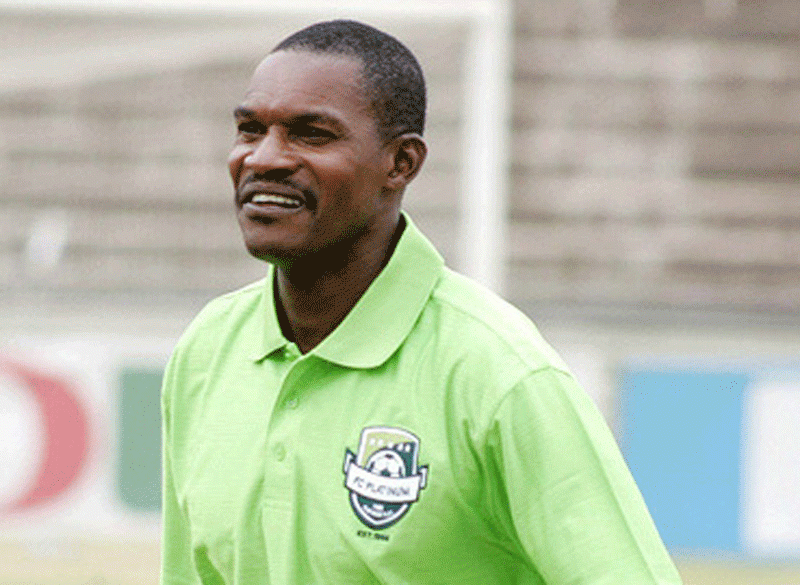
Taisa Tshuma The phrase “it’s just not cricket” is used in English to say that something is unfair or dishonest. This is the state of the sport of cricket in Zimbabwe. Everything happening feels unfair and dishonest.
The once inspiring giant slaying Zimbabwe national cricket team affectionately known as the Chevrons is now just a memory. The decline of cricket has been steady and gradual. Like everything else that has died in this country, national politics had a big hand.
The 2003 Cricket World Cup hosts, South Africa, decided to award six of the group stage matches to neighbours Zimbabwe. The periods leading to 2003 were characterised by a violent land reform programme where farmers were beaten up and some murdered. Law enforcement did not intervene to quell the violence leading to the conclusion that the violence and murders were government sanctioned.
It is against this state of politics that top player Andy Flower and the first black cricketer, Henry Olonga made a decision to wear black armbands at the world cup matches. They said they were “mourning the death of democracy” in Zimbabwe.
The international media took notice and the government felt the pressure, and fought back. The result was that the two players went on to be exiled in England. This was the beginning of uncertainty and downturn within Zimbabwe Cricket circles.
Prior to these events, Zimbabwean cricket was on the rise and the popularity of the sport was growing by leaps and bounds. More kids in townships played the game on the streets instead of the traditional soccer.
An associate member of the International Cricket Council (ICC) since July 1981, Zimbabwe was accorded the prestigious Test status in July 1992. Zimbabwe was in the top-9 cricket playing nations in the world. This was definitely good company to be among and the country was not just making up the numbers.
The team was very competitive and registered their first ever test cricket victory in 1995 against Pakistan at Harare Sports Club.
- Chamisa under fire over US$120K donation
- Mavhunga puts DeMbare into Chibuku quarterfinals
- Pension funds bet on Cabora Bassa oilfields
- Councils defy govt fire tender directive
Keep Reading
Impressive figures of a double century not out by Grant Flower guided Zimbabwe to a first innings total of 544/4 declared. In reply Pakistan could not chase down the massive total in two innings and fell short by 64 runs.
Heath Streak produced a superb performance with the ball claiming a 9-wicket haul in the match for 105 runs in 50 overs.
In the One Day International (ODI) format of the game, Zimbabwe had enjoyed even more success buoyed by their spirited and excellent fielding.
The team managed to claim the scalp of England in the 1992 world cup group stage match. The victory was big news in the cricket world.
Zimbabwe performed well at the 1999 Cricket World Cup, coming in fifth place in the Super Sixes and only missing out on a semi-final place due to having an inferior net run-rate than New Zealand.
In the group stage, Zimbabwe had beaten India by three runs, before facing neighbours South Africa, who were then the number one team in the world.
Zimbabwe won that match by 48 runs with Niel Johnson producing a tenacious 76 runs with the bat and taking 3 wickets for 27 runs in 8 overs. At one point South Africa collapsed to 40/6. Current Zimbabwe batting coach, former Proteas all rounder Lance Klusener and Shaun Pollock steadied the innings with half centuries each but it was in vain. South Africa were eventually all out with the score at 185 in 47.2 overs.
This was the golden era for Zimbabwean cricket. During this period, Zimbabwe beat all Test-playing nations (except Australia) regularly in ODI series. Zimbabwe beat New Zealand home and away in 2000–2001.
Andy Flower was at some point ranked the number one player in the world. Zimbabwe’s toxic political situation could not stay out of the spotlight. Towards the end of the glory years, team selection commandeering allegations started to emerge.
A similar situation had happened earlier in soccer with the exciting national team, the Warriors, coached by Reinhard Fabisch.
After the 2003 Cricket World Cup and the black armbands protest many of the senior players began to prematurely leave the team. The new breed of players coming in were predominantly all-rounders who were competitive though hardly successful.
In 2004, team captain Heath Streak was sacked by the then Zimbabwe Cricket Union (ZCU), now Zimbabwe Cricket (ZC), prompting 14 players to walkout in protest, citing political interference. The issue was the influence politicians were having on the team management and selection policy.
Fringe players found favour but results were not impressive so Streak was reinstated. The national economic crisis was biting and during international tours Zimbabwe players were seen buying basic necessities for the home instead of the usual souvenirs.
Despite the return of some rebel players, Zimbabwe went on to suffer humiliation at home by New Zealand, losing a test match within two days.
By January 2006, 37 cricketers failed to receive any offer of renegotiation talks from ZC after their contracts had expired. This body of players demanded that the chairman and managing director of Zimbabwe Cricket, Peter Chingoka and Ozias Bvute, be removed from office.
On January 6, 2006, the Sports and Recreation Commission (SRC), took over the offices of Zimbabwe Cricket. The takeover resulted in the firing of all whites and Asians on the board, because of “their racial connotations” and serving “their own agendas and not government policy” according to Gibson Mashingaidze, an army brigadier and chairman of the (SRC).
Still in 2006, the domestic Logan Cup competition was cancelled for the first time since its inception outside the times it was affected by the two World Wars.
Leading up to the 2007 Cricket World Cup in the West Indies, to stop a similar exodus of players as after the 2003 World Cup, the selected players were asked to sign new contracts. The players were summoned to meet Ozias Bvute, a week or so before they were due to set off and given an ultimatum – sign the contract on offer or be removed from the squad. It was just not cricket anymore.
The excitement that had gripped cricket fans at the turn of the century waned. Victories were far and few between, though individual brilliance largely by Brandon Taylor, ably supported on occasion by the likes of Tatenda Taibu, Hamilton Masakadza, Graeme Cremer, Sean Williams, Craig Ervine, Elton Chigumbura and Sikandar Raza brought some joy. Most notable of these victories came against New Zealand. The Kiwis posted 328 runs in 50 overs. Zimbabwe had never successfully chased down a score over 300, but the heroics of Malcolm Waller’s 99 not out, saw the Chevrons win by 1 wicket.
Zimbabwe also beat Australia at Harare Sports Club by 3 wickets in 2014. There was also a victory against Sri Lanka in the post 2010 period. Most of the other wins came against Associate members of the ICC.
Tshuma is a social commentator. Twitter — @TaisaPT.
In July 2018, Zimbabwe hosted Australia and Pakistan in a T20 tri-series. Brendan Taylor, Graeme Cremer, Sean Williams, Craig Ervine and Sikandar Raza – refused to play in protest of unpaid salaries backdated to about a year. This resulted in a depleted team which lost heavily.
New coach Lalchand Sitaram Rajput was appointed for a short term in 2018 and extended his contract until early June 2022. A string of below par performances against lowly ranked opponents saw him being replaced by “glory days” legend Dave Houghton.
Despite the high expectations of Houghton, it’s unlikely he will bring back the glory days, if the political mangling culture remains.
The development structures which were the cricket playing primary schools like Rhodes Estate Preparatory School (Reps) in Matopos, just outside Bulawayo have been rundown. There’s virtually no organised extracurricular activity for kids anymore. Professional sport, moreso cricket, demands much more than just raw talent, it must be ingrown as a culture and lifestyle.
Reps, a government school, was the venue for president Robert Mugabe’s birthday bash in February 2017. The focus was on politics and in a power play move, the then exuberant Zanu PF youth wing leader Kudzanai Chipanga ordered the two vice presidents Emerson Mnangagwa and Phelekezela Mpoko to get up with their spouses and dance for the president.
Factional politics tensions were at fever pitch and the only mention of the host school was a suggestion that the government should change the name to spite Cecil Rhodes. There was no mention of giving the school a much needed facelift or any redevelopment plans.
Reps is the primary school that produced all-rounder former Chevrons captain Heath Streak. The school also gave the country its first black cricketer Henry Olonga and cricket broadcast maestro Mpumelelo Mbangwa, who played briefly for the Chevrons. The talent that can potentially come out of Zimbabwe now opts out of the game early to avoid the shenanigans at ZC.
The events and state of Zimbabwe cricket exhibit dishonest and unfair outcomes. “It’s just not cricket”, anymore.
This phrase can be rearranged to, “It’s not just cricket” that is under siege.
The overgrown tentacles of the country’s politics have poisoned every facet of society. Almost everything that has torpedoed in the country is linked to the imposition of a faulty political ideology that seeks to commandeer and coerce or demonise anyone and everything that doesn’t align.
If Zimbabwean cricket is to revive, a lot of structural changes are needed both in the ZC boardroom and beyond.
- Taisa P Tshuma is a social commentator. Twitter – @TaisaPT











